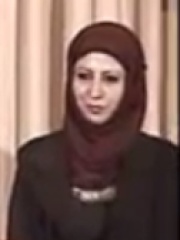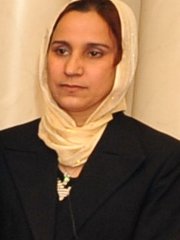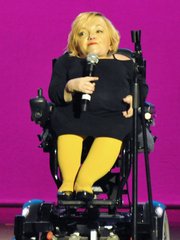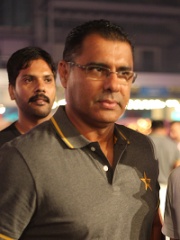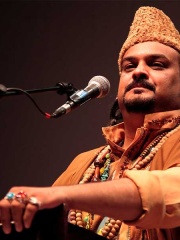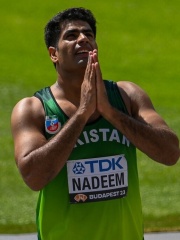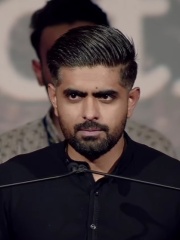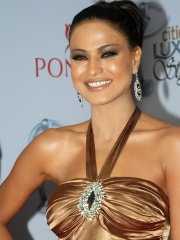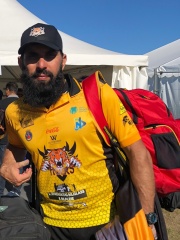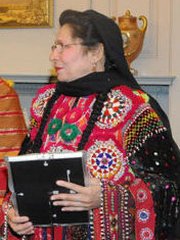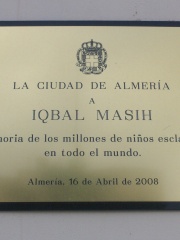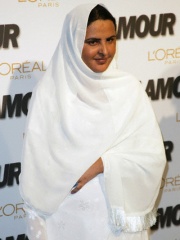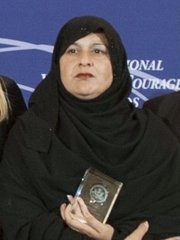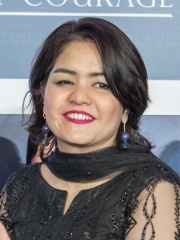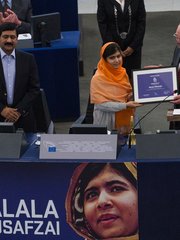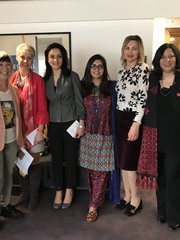Social Activist
Laila Haidari
 Laila Haidari
Laila Haidari
Her biography is available in 15 different languages on Wikipedia. Laila Haidari is the 909th most popular social activist, the 220th most popular biography from Pakistan and the 12th most popular Pakistani Social Activist.
Laila Haidari is most famous for her work as an Afghan human rights activist, particularly in advocating for women's rights and supporting marginalized communities in Afghanistan. She is also known for founding a drug rehabilitation center that helps individuals struggling with addiction.
Memorability Metrics
Page views of Laila Haidari by language
Among Social Activists
Among social activists, Laila Haidari ranks 909 out of 840. Before her are Nibal Thawabteh, Mikaela Loach, Michelle Suárez Bértora, Rebecca Kabugho, Rebecca Masika Katsuva, and Nicole Becker. After her are Ayọ Tometi, Tess Asplund, Lucie Pinson, Paloma Costa, Shukria Asil, and Stella Young.
Most Popular Social Activists in Wikipedia
Go to all RankingsNibal Thawabteh
2000 - Present
HPI: 34.62
Rank: 903
Mikaela Loach
1998 - Present
HPI: 34.57
Rank: 904
Michelle Suárez Bértora
1984 - 2022
HPI: 34.47
Rank: 905
Rebecca Kabugho
1994 - Present
HPI: 34.25
Rank: 906
Rebecca Masika Katsuva
1966 - 2016
HPI: 34.14
Rank: 907
Nicole Becker
2001 - Present
HPI: 34.09
Rank: 908
Laila Haidari
HPI: 33.97
Rank: 909
Ayọ Tometi
1984 - Present
HPI: 33.96
Rank: 910
Tess Asplund
HPI: 33.85
Rank: 911
Lucie Pinson
1985 - Present
HPI: 33.77
Rank: 912
Paloma Costa
1992 - Present
HPI: 33.76
Rank: 913
Shukria Asil
2000 - Present
HPI: 33.71
Rank: 914
Stella Young
1982 - 2014
HPI: 33.61
Rank: 915
In Pakistan
Among people born in Pakistan, Laila Haidari ranks 220 out of NaN. Before her are Waqar Younis (1971), Arfa Karim (1995), Amjad Sabri (1970), Arshad Nadeem (1997), Babar Azam (1994), and Veena Malik (1984). After her are Priya Gill (1977), Ayesha Malik (1966), Misbah-ul-Haq (1974), Begum Jan (2000), Saba Qamar (1984), and Shoaib Malik (1982).
Others born in Pakistan
Go to all RankingsWaqar Younis
CRICKETER
1971 - Present
HPI: 35.39
Rank: 214
Arfa Karim
COMPUTER SCIENTIST
1995 - 2012
HPI: 35.25
Rank: 215
Amjad Sabri
SINGER
1970 - 2016
HPI: 34.94
Rank: 216
Arshad Nadeem
ATHLETE
1997 - Present
HPI: 34.66
Rank: 217
Babar Azam
CRICKETER
1994 - Present
HPI: 34.13
Rank: 218
Veena Malik
ACTOR
1984 - Present
HPI: 34.02
Rank: 219
Laila Haidari
SOCIAL ACTIVIST
HPI: 33.97
Rank: 220
Priya Gill
ACTOR
1977 - Present
HPI: 33.81
Rank: 221
Ayesha Malik
JUDGE
1966 - Present
HPI: 33.52
Rank: 222
Misbah-ul-Haq
CRICKETER
1974 - Present
HPI: 33.35
Rank: 223
Begum Jan
SOCIAL ACTIVIST
2000 - Present
HPI: 32.70
Rank: 224
Saba Qamar
ACTOR
1984 - Present
HPI: 32.42
Rank: 225
Shoaib Malik
CRICKETER
1982 - Present
HPI: 32.04
Rank: 226
Among Social Activists In Pakistan
Among social activists born in Pakistan, Laila Haidari ranks 12. Before her are Iqbal Masih (1983), Mukhtar Mai (1972), Tabassum Adnan (null), Jalila Haider (1988), Ziauddin Yousafzai (1969), and Abia Akram (1985). After her are Begum Jan (2000), Mahrang Baloch (1993), and Gulalai Ismail (1986).
Iqbal Masih
1983 - 1995
HPI: 52.48
Rank: 6
Mukhtar Mai
1972 - Present
HPI: 50.47
Rank: 7
Tabassum Adnan
HPI: 41.11
Rank: 8
Jalila Haider
1988 - Present
HPI: 38.74
Rank: 9
Ziauddin Yousafzai
1969 - Present
HPI: 37.66
Rank: 10
Abia Akram
1985 - Present
HPI: 37.28
Rank: 11
Laila Haidari
HPI: 33.97
Rank: 12
Begum Jan
2000 - Present
HPI: 32.70
Rank: 13
Mahrang Baloch
1993 - Present
HPI: 30.42
Rank: 14
Gulalai Ismail
1986 - Present
HPI: 27.11
Rank: 15

